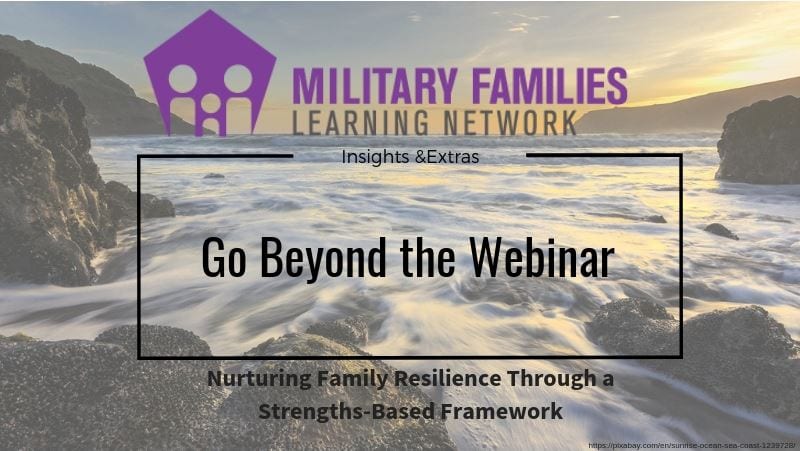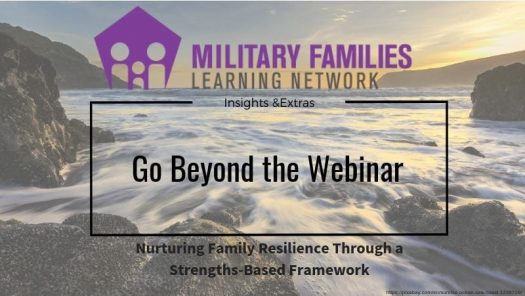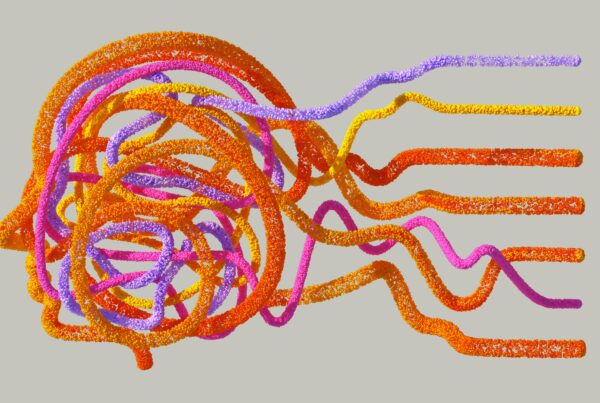
On August 22, 2019, in the second webinar within our OneOp Resilience Series, Dr. Froma Walsh provided her insight and expertise on building resilience through tough times for couples and families. Dr. Walsh highlighted how highly stressful adverse situations impact the whole family and, in turn, how families dealing with challenges can facilitate positive adaptation for individual family members, their relationships, and the family as a whole.
Dr. Walsh is the Co-Founder and Co-Director of the Chicago Center for Family Health and a Firestone Professor Emerita at the University of Chicago. She is a foremost expert on family resilience, with extensive experience in situations of trauma and complicated loss; disruptive family transitions; and multi-stress, chronic conditions. For more on Dr. Froma Walsh, here is a link to her bio page.
With the conclusion of this webinar, we wanted to go back and showcase some of the highlights and to share info we found to be very helpful for professionals working with families. These helpful details to strengthen and nurture family resilience include foundational concepts on the resilience theory such as:
- One key takeaway Dr. Walsh pointed out is that when we talk about a crisis, it’s not just an event that happens on just a single day. There are ripple effects and it may take a while to begin to build strength and resiliency in the aftermath of these live events.
- Walsh shared that research shows within a few months to a year after a traumatic event, many people are able to not just to get back to a standard baseline they had before the event, but create a “new normal” that takes into account the crisis they faced and how to incorporate it into their lives for the better. It’s about rebuilding and growing stronger out of adversity.
- There are common misconceptions about resilience and what it looks like. Many interpret resiliency as an individual’s ability to “bounce back” or “get over it.” However, practicing resilience involves struggling well, in which resilience requires constantly working through and learning from adversity. It also includes the ability to integrate past adverse experiences into the current and future chapters of our lives and to find strength and meaning in those experiences.
- The approach of building family resilience is to practice reframing problems and risk factors as obstacles to success, with a focus on fostering positivity from traumatic events and life stressors. The goal is to identify and strengthen tools and resources for families as they learn to cope, adapt, and grow positively. By incorporating all members of the family and focusing on fostering the family as a unit, each individual has a role to play in strengthening the family. This avoids the potential issue of putting all the work on a single individual in the family, like a parent. This approach is about building team support through mutual collaboration.
- Walsh introduced her family resilience framework, which integrates more than three decades of research and practice experience on resilience and effective family functioning.
- A significant piece of this framework is the Key Processes in Family Resilience. These Key Processes are: belief systems, organizational supports, and communication processes. These three processes are the cornerstones of the family resilience framework.
- Vicarious resilience is an important concept for therapists and other service professionals. Through this resilience-oriented practice, it can be beneficial for professionals to combat burnout and compassion overload when working with families who have experienced trauma and high stress.
- Most importantly, Dr. Walsh conveyed the important message that all families have the capacity to grow and thrive from stresses and trauma.
If you happened to miss out on this live webinar, or would be more interested in gaining more information on any of the details above, the archived video recording of this webinar is available on the event page here. This webinar is part of our three-part Resilience Series, which also focuses on resilience in individuals and in communities. To view archived recordings for all three of the webinars within the Resilience Series, visit the Resilience Series homepage here. FREE Continuing Education (CE) Credits for all three of the webinars within the Resilience Series are still available. Thanks so much and stay tuned for more great OneOp programming!















